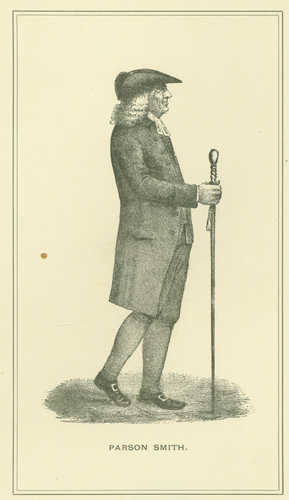Keywords: assume
Item 101162
Sportsman at Buckhorn Camp, Jo-Mary Lakes, 1910
Contributed by: Norcross Heritage Trust Date: circa 1910 Location: Indian Purchase Township No. 4 Media: Photographic print
Item 66929
Transfer of quartermaster stores, Port Hudson, LA, 1863
Contributed by: Maine Historical Society Date: 1863 Location: Port Hudson; Castine Media: Ink on paper
Exhibit
Northern Threads: Penobscot mocassins
A themed exhibit vignette within "Northern Threads, Part I," about telling stories through Indigenous clothing, featuring an essay by Jennifer Sapiel Neptune (Penobscot.)
Exhibit
Desserts have always been a special treat. For centuries, Mainers have enjoyed something sweet as a nice conclusion to a meal or celebrate a special occasion. But many things have changed over the years: how cooks learn to make desserts, what foods and tools were available, what was important to people.
Site Page
Thomaston: The Town that Went to Sea - Ammunition Case
"We could assume that it was taken from a soldier who fell during battle and was taken to Thomaston, Maine. Of course, we can never be sure."
Site Page
"… that the (still unincorporated) town would assume the power to revoke grants to anyone who “neglect[ed]” to build on the land” for the space of…"
Story
I have thought about Vietnam almost every day for 48 years
by Ted Heselton
Working as a heavy equipment operator in Vietnam
Story
Reverend Thomas Smith of First Parish Portland
by Kristina Minister, Ph.D.
Pastor, Physician, Real Estate Speculator, and Agent for Wabanaki Genocide
Lesson Plan
Longfellow Studies: Longfellow Amongst His Contemporaries - The Ship of State DBQ
Grade Level: 9-12
Content Area: English Language Arts, Social Studies
Preparation Required/Preliminary Discussion:
Lesson plans should be done in the context of a course of study on American literature and/or history from the Revolution to the Civil War.
The ship of state is an ancient metaphor in the western world, especially among seafaring people, but this figure of speech assumed a more widespread and literal significance in the English colonies of the New World. From the middle of the 17th century, after all, until revolution broke out in 1775, the dominant system of governance in the colonies was the Navigation Acts. The primary responsibility of colonial governors, according to both Parliament and the Crown, was the enforcement of the laws of trade, and the governors themselves appointed naval officers to ensure that the various provisions and regulations of the Navigation Acts were executed. England, in other words, governed her American colonies as if they were merchant ships.
This metaphorical conception of the colonies as a naval enterprise not only survived the Revolution but also took on a deeper relevance following the construction of the Union. The United States of America had now become the ship of state, launched on July 4th 1776 and dedicated to the radical proposition that all men are created equal and endowed with certain unalienable rights. This proposition is examined and tested in any number of ways during the decades between the Revolution and the Civil War. Novelists and poets, as well as politicians and statesmen, questioned its viability: Whither goes the ship of state? Is there a safe harbor somewhere up ahead or is the vessel doomed to ruin and wreckage? Is she well built and sturdy or is there some essential flaw in her structural frame?












